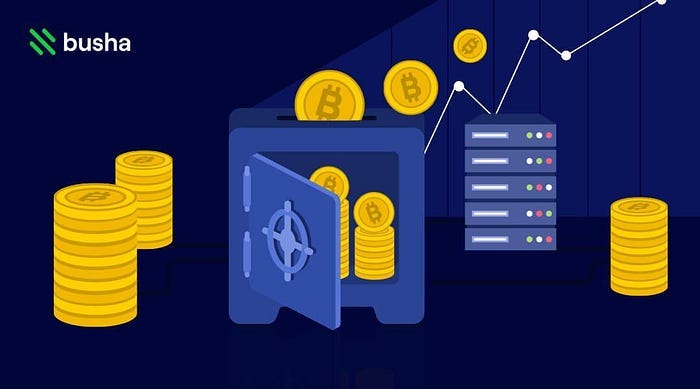Staking is a crucial perform for Proof-of-Stake blockchain protocol because it contributes to the safety of the community and affords a extra vitality environment friendly various for attaining consensus when in comparison with Bitcoin, which operates beneath a
Proof-of-Work system.
However, the vitality effectivity of Proof-of-Stake comes at the price of capital inefficiency.
Staking requires members of the Proof-of-Stake protocol to deposit the native tokens of the blockchain protocol (e.g. Ethereum 2.0, Polygon, and so on.) into a wise contract (“stake”) and validate the transactions of the community. In trade, the validator
receives rewards from the blockchain protocol within the type of newly minted native tokens which come immediately from the inbuilt inflation fee of the protocol (“staking rewards”).
Why is validating transactions is important?
Staking tokens can due to this fact be perceived as a working capital requirement for key infrastructure in Proof of Stake blockchain networks – transaction validation. Staking tokens (capital) is a prerequisite for the suitable to validate transactions, and transaction
validation (work) is a prerequisite to attaining community consensus and safety.
Delegated Proof-of-Stake – Solution for enhancing participation and safety in Blockchain protocols
As the duties of validating transactions and offering working capital to Proof-of-Stake networks require completely different abilities from members and imposes completely different dangers on them, there are a number of variations of Proof-of-Stake that allow community customers to simply
divide the duties and share rewards.
One instance is the idea of delegated or nominated Proof-of-Stake, the place capital suppliers/stakers choose validators who stake their tokens in trade for a portion of the staking rewards. In this mannequin, the validator is commonly required to stake its personal
native tokens and, as compensation for the important thing infrastructure work carried out, receives a price proportional to the delegated stake acquired.
By eliminating the requirement for stakers to validating transactions, Delegated Proof-of-Stake is useful in bringing extra tokens to staking techniques, which improves the safety of blockchain protocols. However, it doesn’t clear up the inherent drawback of
capital inefficiency in Proof-of-Stake techniques. Indeed, each time a consumer stakes (immediately or by way of delegated staking), the tokens deposited turn into unmovable and can’t be utilized in Decentralized Finance (DeFi).
Internet Bonds – Solution for enhancing participation and safety in Blockchain protocols and enhancing capital effectivity of staked tokens
Internet Bonds, that are additionally referred as liquid staking, present an answer to the capital
inefficiency of staked tokens by tokenizing the worth of staking rewards, which creates a number of advantages, reminiscent of:
Enhanced liquidity for stakers, as Internet Bonds may be traded on decentralized exchanges, which eliminates the chance value of immovable staked tokens resulting from staking lock-up intervals (which vary from 2 days for Solana, to twenty-eight days for Polkadot to the
period of time previous to part 1.5 of Ethereum 2.0)
Increased capital effectivity by enabling a number of layers of rewards to be earned in DeFi on high of staking rewards, together with:
a. Trading charges from offering liquidity in decentralized trade, with very low impermanent loss,
b. Using lending to earn further staking yield (e.g. utilizing ETH 2.0 Internet Bond as collateral to borrow ETH and staking the ETH, as long as the borrowing rate of interest of ETH is decrease than internet staking rewards from ETH 2.0), and
c. Arbitrage alternatives, by exploiting pricing inefficiencies amongst main market (stake/unstake at honest worth in trade of Internet Bond), secondary market (commerce Internet bond in decentralized trade) and DeFi OTC market (i.e., public sale marketplaces).
a. Making the staking expertise so simple as a swap,
b. Facilitating entry on Ethereum to staking rewards earned on completely different blockchain networks reminiscent of Binance Smart Chain or Polygon
4. Scalable staking infrastructure, as exchanges offering one-click staking expertise usually are not essentially required to run their very own staking nodes or combine with staking suppliers. Rather, the exchanges could incorporate Internet Bonds into their platforms.
Not all Internet Bonds are the identical as every Internet Bond supplier may design the staking/unstaking mechanism in numerous methods consistent with the specificities of the underlying blockchain protocol (e.g. blockchain protocols have completely different lock-up intervals
for unstaking) and staking consumer base (DeFi consumer or institutional shoppers).
The Decentralized Finance Fixed Income ecosystem
Decentralized Finance affords a number of sources of passive revenue past staking rewards, reminiscent of:
lending curiosity
buying and selling charges from offering liquidity to decentralized exchanges
farming rewards rewarding liquidity provision to sure platforms
compounding impact from combining a number of sources of passive revenue into particular methods (referred as yield farming in DeFi), which may be automated by way of yield aggregating platforms (referred as vaults in DeFi)
The most necessary factor of passive revenue in DeFi is its composability, which means that you would be able to add a number of layers of staking rewards utilizing the underlying token worth and you aren’t essentially compelled to decide on amongst staking rewards, buying and selling charges, and/or
farming rewards.
Composability of passive revenue is commonly reserved to a really small a part of banking shoppers as a result of excessive minimal quantity required to construction such tailored merchandise (Ultra High Net Work Individuals or institutional traders) and regulatory restriction
in promoting complicated merchandise to non-qualified inventors. As such, some traders can require their financial institution to construction for them a tailored Structured Product reminiscent of a Credit-Linked Note of Goldman Sachs, issued by UBS, denominated in Russian Rubles, the place
the traders advantages from 3 layers of revenue by way of its structured product yield:
Yield from Goldman Sachs credit-default swaps (CDS)
Bond yield from UBS because the issuer of the structured product
Benefit from greater rate of interest from the Russian Ruble vs. U.S. Dollar
The Staking and DeFi Fixed Income Market Opportunity
Asset managers reminiscent of UBS Asset Management (excluding Wealth Management) handle approx. $1.1 trillion beneath administration and generate approx. $3bn in working revenue earlier than tax and $1.5bn in working revenue earlier than tax in 2020 (17.84% of UBS Group whole
working revenue earlier than tax, which has a Market Cap of
$56.314bn as of twenty-two.08.2021). As such, we might estimate that the worth of UBS Asset Management could be approx. $10bn.
The staking infrastructure supplier market has the chance to generate approx.
$1.2bn in staking supplier price (assuming 10% common price) with the 12 chosen blockchain protocols under, which is sort of as a lot as UBS Asset Management working revenue earlier than tax.
The function of the comparability is barely to focus on that the staking market is massive sufficient to be ignored and as staking node infrastructure will seemingly turn into commoditized earlier than later, this trade is strongly incentivized to innovate to remain related
(e.g. Internet Bonds). However, as staking rewards are more likely to lower, so is the chance of staked tokens worth to extend, seemingly resulting in a Winner-Takes-All consequence the place a restricted variety of staking infrastructure suppliers will stay related,
both by efficiently attracting institutional quantity, and/or being on the fore-front of innovation within the staking trade.
Innovation is a key factor right here because the DeFi Fixed Income Market is about 4 instances bigger than the 12 chosen blockchain protocols staked worth, and as talked about earlier, Internet Bonds allow customers to learn from these further rewards obtainable in DeFi.
Conclusion
As the staking infrastructure market is probably going going to turn into more and more commoditized, Internet Bonds appear essentially the most promising path shifting ahead for staking infrastructure suppliers to innovate.
Internet Bonds supply a number of advantages for each DeFi and non-DeFi institutional traders keen to learn from the rising DeFi Fixed Income ecosystem, whereas having fun with the good thing about receiving staking rewards, which may be thought of as the bottom fee of
every blockchain protocol.
As the technical limitations to entry to learn from staking rewards lower, staking ought to turn into as simple and apparent as depositing cash in a checking account and receiving a optimistic rate of interest. For these keen to learn from further alternatives
utilizing the worth of staked tokens, Internet Bonds ought to turn into essentially the most most popular car for stakers, which may be in contrast with Government or Corporate Bonds, however with the key distinction that Internet Bonds usually are not primarily based on debt as staking is a working
capital requirement and never a mortgage, assuming that the staking infrastructure supplier is decentrally ruled.
https://www.finextra.com/blogposting/20800/the-internet-bond-market-opportunity




